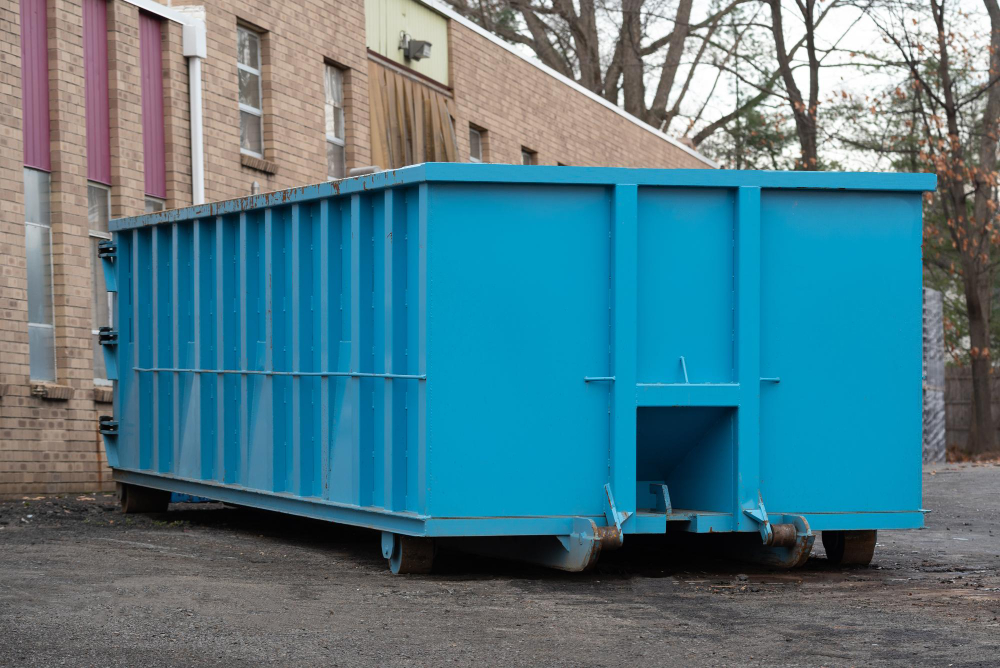Items to Avoid Discarding in a Roll-off Container

With the convenience of roll-off container rentals, managing waste during home renovations, cleanouts, or construction projects has never been easier. However, not everything can be thrown into these large, versatile bins. Knowing what items should be kept out of your roll-off container is crucial for safety, environmental reasons, and compliance with local regulations.
If you’ve just rented a roll-off container for your project, congratulations! You’ve taken a significant step towards an efficient clean-up process. But before you start tossing everything into the container, it's essential to be aware of certain restrictions. Disposing of prohibited items can lead to fines, additional fees, or even environmental harm. This guide will help you identify common items to avoid discarding in your roll-off container and suggest alternative disposal methods.
Understanding What Can’t Go In
- Hazardous Materials
- Why They're Prohibited: Hazardous waste poses significant risks to human health and the environment. They require special handling and disposal methods.
- Examples: Paints, solvents, batteries, pesticides, cleaning agents, and medical waste.
- Alternative Disposal: Look for local hazardous waste collection events or facilities in Ocala, FL, that handle these materials.
- Electronics (E-Waste)
- Why They're Prohibited: Electronics contain harmful substances such as lead and mercury, which can leach into soil and water.
- Examples: Old computers, televisions, cell phones, and microwaves.
- Alternative Disposal: Many electronics stores offer recycling programs, or you can check for e-waste recycling centers in your area.
- Tires
- Why They're Prohibited: Whole tires can trap methane gases, become buoyant, and potentially break through landfill liners.
- Alternative Disposal: Some auto shops and tire retailers will accept old tires for recycling.
- Large Appliances
- Why They're Prohibited: Appliances like refrigerators and air conditioners can contain refrigerants harmful to the environment.
- Examples: Refrigerators, freezers, washers, and dryers.
- Alternative Disposal: Check for local appliance recycling programs or scrap metal collectors who may take them.
- Yard Waste
- Why They're Prohibited: Many areas have specific composting or mulching programs, making yard waste disposal regulated.
- Alternative Disposal: Consider composting or contacting the city of Ocala to inquire about yard waste collection services.
- Liquids
- Why They're Prohibited: Liquids can spill and cause contamination. They also add unnecessary weight to the container.
- Examples: Oils, fuels, antifreeze.
- Alternative Disposal: Local service stations or waste facilities often have programs for accepting these liquids safely.
- Asbestos
- Why It's Prohibited: Extremely hazardous and regulated due to health risks associated with its fibers.
- Alternative Disposal: Hire a licensed asbestos abatement specialist for safe removal and disposal.
- Mattresses
- Why They're Prohibited: Mattresses are often recycled separately because they contain springs and other materials that can be reused.
- Alternative Disposal: Many waste management companies offer mattress recycling services.
Why Proper Disposal Matters
Improper disposal of prohibited items can lead to numerous issues including:
- Environmental Damage: Leaching of harmful chemicals into soil and water supplies.
- Health Risks: Exposure to hazardous materials can be dangerous for workers and the public.
- Fines and Penalties: Violating waste disposal regulations can result in significant fines and additional costs.
Solutions for Proper Waste Disposal
- Educate Yourself: Familiarize yourself with local regulations and waste management guidelines.
- Plan Ahead: Before renting a roll-off container, list all items you plan to dispose of and verify their acceptability.
- Seek Professional Help: For complicated disposal needs, consult with a professional waste management company.
Conclusion
Renting a roll-off container is a fantastic solution for managing large waste loads, but responsible disposal is key. By avoiding these prohibited items, you ensure a smoother, more environmentally friendly waste management process. If you're looking for a roll-off container rental in Ocala, FL, contact All Waste Dumpster today to get your free quote and ensure compliant waste disposal.
Properly managing your waste not only helps keep Ocala beautiful but also contributes to a healthier, more sustainable environment for everyone. Make informed decisions and take advantage of local resources to handle your waste responsibly.